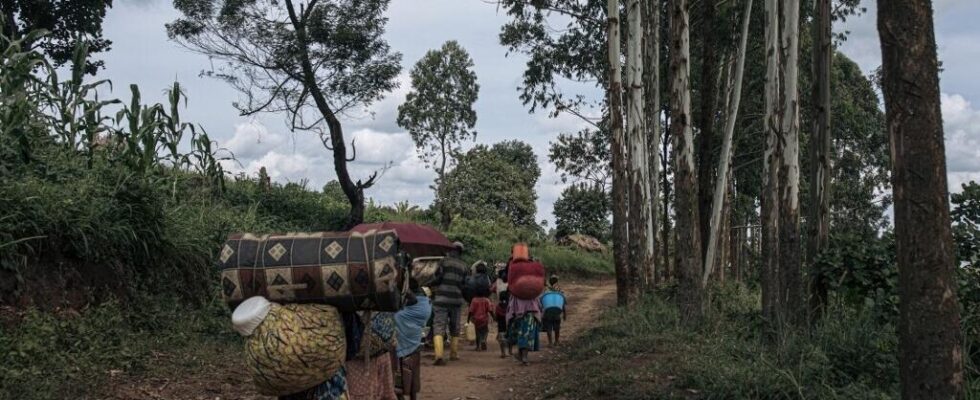In the Democratic Republic of Congo, the humanitarian truce – announced by the United States last week and which was to last until July 19 – has been broken. Clashes broke out Friday morning in Nyange, in the province of North Kivu. However, humanitarians point to a significant need to provide relief to the populations who are suffering greatly.
2 min
Clashes broke out about 70 km northwest of Goma, in North Kivu province, between fighters from a local armed group allied with the Congolese army and the M23 rebels, supported by Rwanda.
The United States had announced the acceptance of this “ humanitarian truce ” on both sides to relieve the populations. And according to Zakaria Tarpouga, country director of the NGO DanChurchAid, the needs are very great. ” The first assessments revealed food security needs, so food, needs also in water, hygiene and sanitation, needs in shelter, but also assistance in protection. There is also the issue of gender-based violence because due to population movements, there are people who are victims of sexual violence and we really need to provide them with assistance. »
The truce is usefule NGOs can also arrive in the area and deliver equipment, adds Zakaria Tarpouga. For the populations, this allows “to be able to return to their original location if they wish. There is a need for a lifelong truce for peace and security. There is a need for the fighting to stop. »
Marco Doneda, deputy head of mission for Médecins Sans Frontières (MSF) in eastern DRC, is not surprised by the breakdown of the truce. We have no illusions about the effectiveness of the truce, even if the situation is not the same everywhere. We have teams working north of Kanyabayonga. The situation is calm, the people who fled are apparently returning to their area. »
Conversely, other areas are affected by fighting which prevents the NGO MSF from going there. In the Mweso area, we are waiting for the fighting to be over before going down. And clearly, now, the purpose of our visit will be different, because we will have to try to bring medicines for emergencies and for all the wounded that there will be, because there has been really heavy fighting in the area. Unfortunately, this fighting is taking place in villages where there are civilian populations. »
